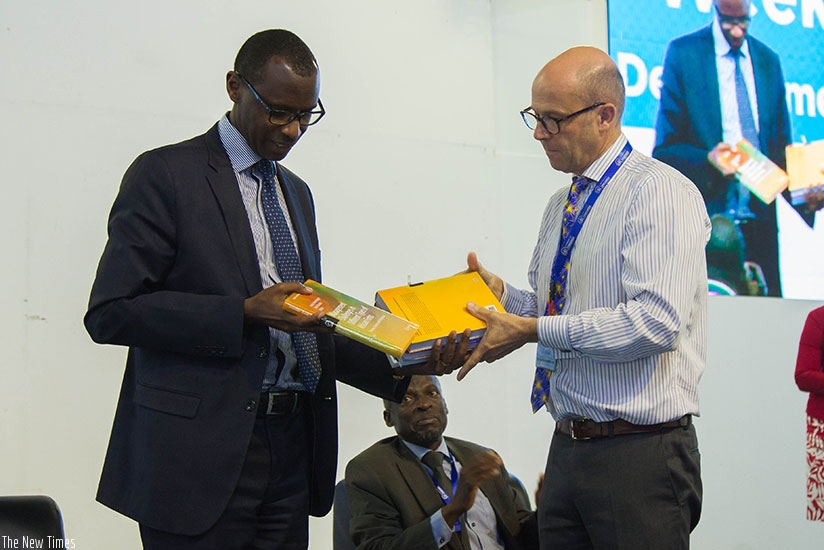Academic research carried out at universities, including University of Rwanda, should be more focused on solving community, national, and global challenges, delegates at an on-going scientific conference have said.


Academic research carried out at universities, including University of Rwanda, should be more focused on solving community, national, and global challenges, delegates at an on-going scientific conference have said.
The three-day international scientific conference opened at the University of Rwanda yesterday. It is running under the theme, "Rebranding Research for Sustainable Development,” and seeks to help inspire development-oriented research at the university and other colleges across Africa and the world.
The forum brought together scholars from Rwanda and countries in Africa, Europe, Asia, and Americas, to talk about how academic research should be more responsive to current global challenges such as climate change, peace and security, people’s health and prosperity, as well as global economics and education, among others.
University of Rwanda deputy vice-chancellor for institutional advancement, Dr Charles Murigande, told The New Times on the sidelines of the meeting that it was poised to be a meaningful time-off lecturers’ normal work to discuss how their research can positively influence national and global development policies.
"Our researchers tend to look at current development challenges at the national level but, with this kind of forum, they get to meet researchers from other countries and get a global perspective. The objective of the conference is to raise awareness to make our research much more influential for policymaking,” he said.
‘Significant research plan’
Murigande, who had a long career in public service and diplomacy before returning to academia, said that many African countries often don’t base on research to plan sustainable development policies and hopes that University of Rwanda can do more national development-oriented research that could inspire government policies.
"Here, at University of Rwanda, we do research but it’s not only for the sake of doing it; we want to inspire development. The conference seeks to put research at the centre of sustainable development,” he said.
The university, a merger three years ago of public institutions of higher learning, is mandated to offer both undergraduate and postgraduate training as well as conduct high quality research in a wide diversity of disciplines in partnership with other internationally recognised universities and research organisations.
Celebrating researchers
The Vice-Chancellor, Prof. Phillip Cotton, told delegates at the opening of the meeting that the event is essentially three days of celebrating the hard work by the university’s lecturers and sharing with their colleagues from other countries.
The deputy Vice-Chancellor for Academic Affairs and Research, Prof. Nelson Ijumba, said research productivity at the institution has improved since it was created more than three years ago.
He said research culture at public universities in Rwanda was low because it was previously not a requirement for lecturers and there was no appreciation of the value of research at the institutions.
A mindset change was needed, Ijumba said, and today changes have been introduced and they resulted into better ranking for the University of Rwanda on the African continent.
"Given the improvement in our research productivity, the ranking for the university has improved,” Prof Ijumba said, explaining that the institution is currently among top 100 best universities in Africa instead of the top 300 when the National University of Rwanda was first restructured as part of the merger to form University of Rwanda.
On the first day of the meeting, yesterday, the Minister for Education, Dr Papias Malimba Musafiri, promised the university every support from the government in order to achieve its ambitions and targets.
editorial@newtimes.co.rw


